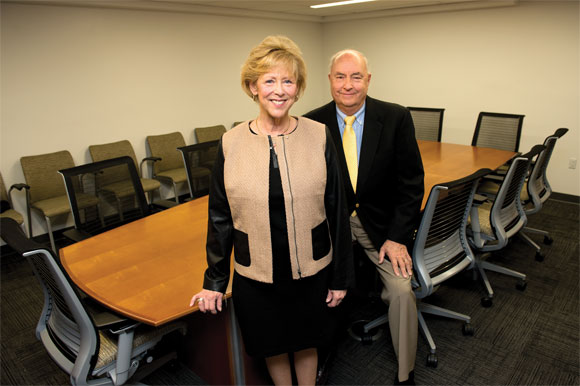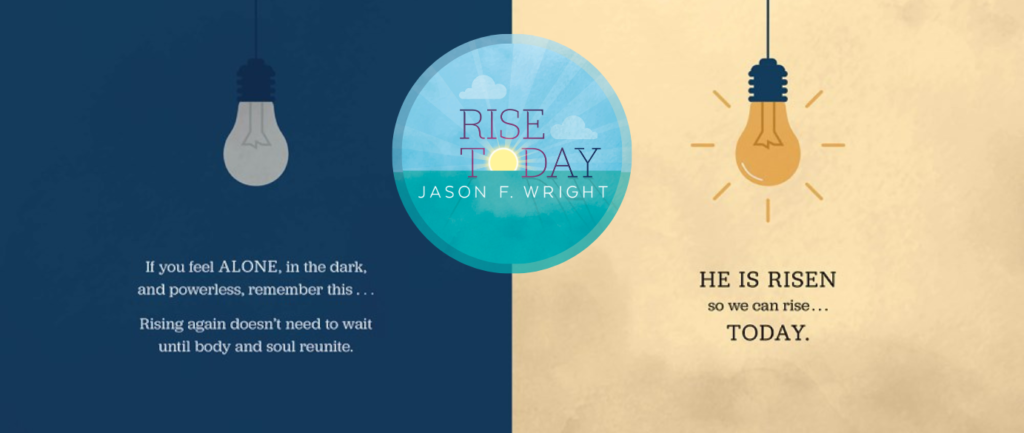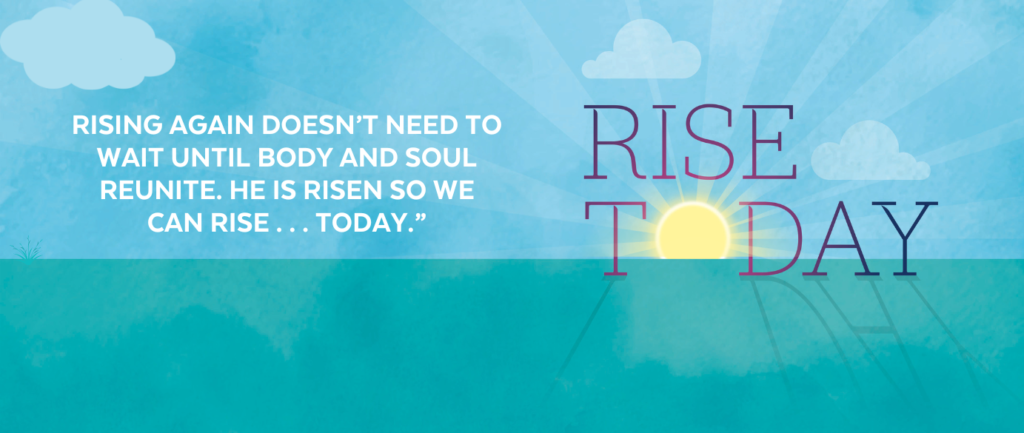
Wealthy businessman Bill Holtzman seems to have everything — including dyslexia
(Bill and his wife Ann visit the Ann F. Holtzman Conference Room at Virginia Tech in in Blacksburg. Photo by Logan Wallace and Amanda Logan)
Bill Holtzman of Mount Jackson, Virginia, is an accomplished, successful man.
He sits at the head of a privately held company with more than 700 employees and hundreds of millions of dollars in revenue. He owns fuel, propane and ice companies, an impressive chain of gas stations and convenience stores and a string of Denny’s and Burger King franchises.
Yes, it might seem Bill Holtzman has everything.
He even has dyslexia.
Holtzman was in the second grade when his mother first recognized his challenges. Not much was known back then, and what little they did know about dyslexia wasn’t widely shared.
Fortunately, Holtzman’s mother was a schoolteacher with a thirst to better understand his disability and a fierce commitment to getting him help. She sacrificed significantly to take her son to the University of Virginia in Charlottesville to meet with one of the few dyslexia experts. The doctor explained that Holtzman would likely always struggle to find success.
He was right about struggle, but wrong about success.
The young man determined that dyslexia would not beat him, and never considered it a handicap.
Although he made progress by working 30 minutes a night on flashcards with his mother, he still floundered in public school and his parents moved him to the day school at Massanutten Military Academy in Woodstock, Virginia. Holtzman sniffed the smell of a fresh start and recommitted himself. In 1955, he graduated in the top third of his class and was admitted to Virginia Tech.
Four years later he graduated and left Blacksburg to serve in the Army 33rd Armored Division. After completing his tour of service, he returned home and went to Cornell University, but he still packed the dyslexia along with him. As he pursued a graduate degree, he continued to wrestle with reading his text books.
“I just couldn’t do it,” Holtzman told me during a recent interview. “My kind of dyslexia meant that I wasn’t just reading the sentence backward, I was reading each individual word backward. So unless the instructor professor taught the concept in class and I captured it in my notes, I didn’t know the answers on the test. I had to listen very, very closely in class.”
The listening paid off, and Holtzman graduated with an M.S. in Horticulture. He immediately dove into a career in the apple business, but like every other season of his life, his disability was always at his side.
“Only my immediate family knew of my struggles to read. I decided that this was just who I was. It was just something I was going to have to deal with my entire life and I was not going to use it as a crutch or lean on it in any way.”
After a decade working his way up the ranks at one of Virginia’s largest apple growers, Holtzman saw a unique opportunity. In 1972, he put up $5,000 in cash and borrowed another $37,000 from a bank — with a loan secured by his 1971 Thunderbird — and the rest was entrepreneurial history.
I asked Holtzman how he managed the dyslexia as he grew his tiny company into a massive operation. “It’s never how smart you are. It’s how hard you’re willing to work.”
Holtzman added integrity as the second key ingredient to success for employers and employees at all levels. “Without integrity, you have nothing. You have to be honest with yourself and others and it doesn’t matter how much money you have. People without integrity are never very successful, in my experience.”
He also credits his mother for his success by teaching him to never look at his dyslexia as a handicap. “She told me I just needed to work harder — study harder. But she believed in me and never acted like this was some devastating thing.”
Holtzman said that when he graduated from high school, no one but his mother predicted he’d ever be successful. He’s grateful to have trusted her voice, and no one else’s.
During our casual discussion in his office in Mt. Jackson, Virginia, I asked about his charitable efforts and he was reluctant to offer details. In fact, the interview itself had taken years to schedule because Holtzman did not want to seem prideful or eager to promote his personal or corporate good works. “The company and I don’t do things for recognition. It’s not about tooting your own horn.”
When I prodded specifically on a project I’m familiar with — helping needy families at Christmas — he only opened up after this brief preamble. “I understand that I’ve made my living selling gas, diesel, propane, all from this area. From my neighbors. So I owe it to give back to the same area and the same people. We don’t like to talk about it a lot because it’s not about that. I’ve always thought if you have to tell people how important you are, you’re not very important.”
Carefully skirting the edges like a skilled negotiator not wanting to give in too much, Holtzman described his company’s program to support an average of 65 families each Christmas. He spoke of baskets, dinners and toys and more hours donated by his employees and friends than he could ever calculate.
Describing the looks on the children’s faces brought tears to his eyes, but he quickly deflected credit to others for the heavy lifting of a project now more than 25 years old.
As I watched him regroup and change the subject, I wondered if each December he doesn’t see a bit of himself in those grateful kids.
His message to them, and the rest of us, seems simple. When people predict you’ll likely always struggle to find success, let them be right about the struggle, but wrong about the success.
After all, “It’s never how smart you are. It’s how hard you’re willing to work.”









